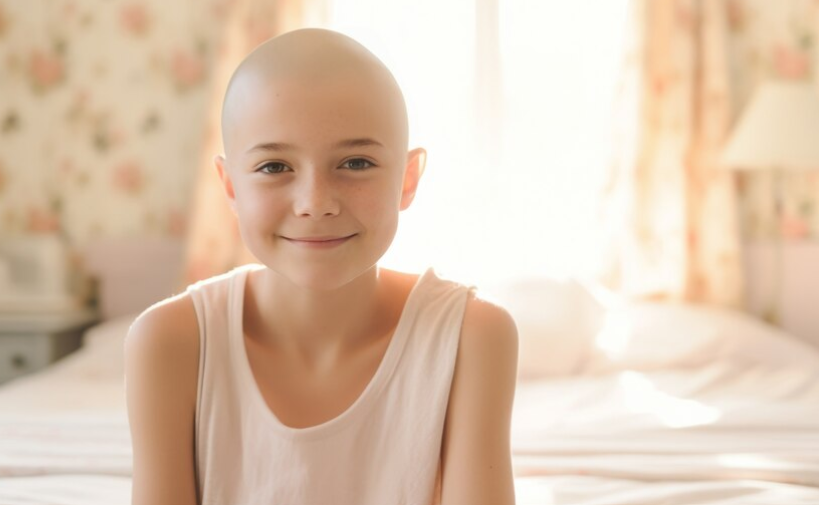
How Are Pediatric Cancers Different from Adult Cancers?
Pediatric cancers differ significantly from adult cancers in various aspects. A subspecialty known as “Pediatric Oncology” has evolved to address these unique needs. Unlike adult cancers, where progression-free survival is often the focus, pediatric oncologists emphasize overall survival. This means that if a child remains cancer-free for five years post-treatment, they have a high potential to lead a cancer-free life.
Curability and Survival Rates
The curability rates for pediatric cancers are generally high, with approximately 70% of cases being curable. For certain types of cancers, the survival rate can be as high as 95%. This is a significant difference from many adult cancers, where survival rates can be lower.
Biological Differences
The biology of pediatric cancers is distinct from that of adult cancers. In adults, cancers typically arise from mature cells, whereas in children, they originate from developing cells capable of dividing and maturing into various cell types. Additionally, while adult cancers are often named after the organ of origin (e.g., breast cancer, liver cancer), pediatric cancers usually arise from tissues before differentiation, resulting in names ending in “blastoma” (e.g., hepatoblastoma, retinoblastoma, neuroblastoma, nephroblastoma).
Lifestyle Factors
Adult cancers can often be linked to lifestyle factors such as smoking, diet, and exposure to carcinogens. In contrast, childhood cancers are rarely associated with lifestyle and have little that can be done to prevent them. Instead, they may result from genetic mutations or environmental exposures that are not yet fully understood.
Incidence of Pediatric Cancers
Globally, approximately 50,000 new cases of pediatric cancer are diagnosed each year. This figure is likely an underestimate, as many cases go unreported in hospital-based registries. The actual incidence may be higher.
Types of Pediatric Cancers
While blood cancer (leukemia) is the most common type of pediatric cancer, accounting for nearly 50% of cases, children can also develop various solid tumors. These include:
- Brain Tumors
- Kidney Tumors
- Liver Tumors
- Muscle Tumors
- Gonadal Tumors
Different types of blood cancers can also be seen, with some types being unique to children and rarely occurring in adults.
Why Do Children Develop Cancer?
The exact cause of pediatric cancers is often unknown. However, pediatric oncologists believe that cancer development in children involves two or more “insults.” The first is a defective ability to recognize and eliminate defective cells. The second insult could be due to infections, exposure to certain pesticides, insecticides, radiation, or other environmental factors. Although we can sometimes identify the changes that occur at the cellular level, pinpointing the exact cause remains challenging.
Treatment of Pediatric Cancers
Treating pediatric cancers involves a multimodal approach, which may include chemotherapy, surgery, radiation, or a combination of these treatments. The treatment plan is tailored to the type of cancer and its stage. Additionally, supportive care is crucial, involving:
- Dietitians: To manage the nutritional needs of children undergoing treatment.
- Psychologists: To address the emotional and psychological needs of young patients who spend significant time in hospitals, away from their peers.
- Educational Support: Ensuring that children continue to learn and develop, even during treatment, to help them reintegrate into society post-treatment.
The goal is to ensure that the child not only survives cancer but also grows up to lead a normal, productive life.
Is the Treatment of Pediatric Cancer Expensive?
The cost of treating pediatric cancer can be high due to the need for multimodal care. However, various institutions, NGOs, and government programs are available to support families financially. Young parents, often overwhelmed by the diagnosis, may find the cost daunting. It is essential to persevere and seek assistance to ensure that children receive the necessary treatment.
Spreading Awareness and Seeking Help
Dr. Vikas Dua, best Pediatric oncologist in India emphasizes the importance of spreading awareness about pediatric cancers. In India, there is a significant issue with abandonment of care for children with cancer. Raising awareness can help parents understand that pediatric cancers are often curable and that help is available.
Dr. Vikas Dua: Leading Pediatric Oncologist
Dr. Vikas Dua is a leading consultant in pediatric hemato-oncology and bone marrow transplants. With over 20 years of experience, he has successfully treated numerous cases of thalassemia and leukemia, helping children from India, Afghanistan, Iraq, and various African countries. Dr. Dua’s expertise extends beyond treating diseases; he is skilled at interacting with children and teenagers, helping them understand and cope with their diagnoses.
Conclusion
Children do get cancer, and the field of pediatric oncology is dedicated to treating these young patients with the utmost care and expertise. Pediatric cancers differ from adult cancers in their biology, treatment, and prognosis. With high curability rates and specialized care, children diagnosed with cancer have a strong chance of leading healthy lives post-treatment.
Dr. Vikas Dua’s extensive experience and compassionate approach make him the best pediatric oncologist in India. His commitment to spreading awareness and providing comprehensive care ensures that children with cancer receive the best possible treatment and support. If your child needs specialized care, Dr. Vikas Dua is a trusted and highly skilled professional in the field of pediatric oncology.

